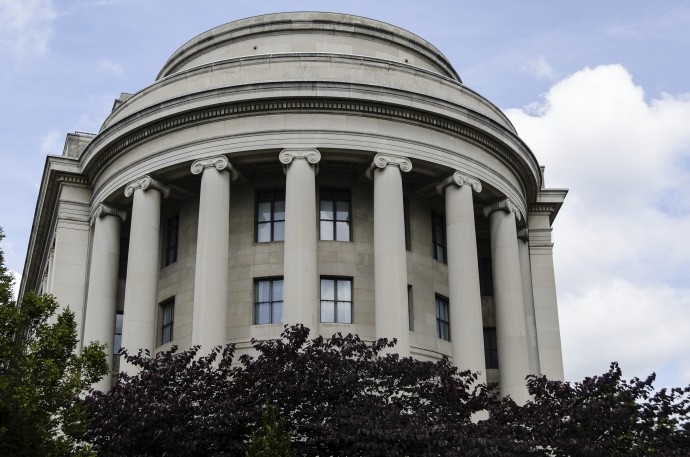
Client Alert | Jul 2024
A Tale of Two Cases: Federal Non-Compete Rules Remain In Limbo Until the End of the Summer
Suggestions for clients during this period of uncertainty and in anticipation of the approaching FTC effective date.
On July 23, 2024, Judge Kelley Brisbon Hodge of the United States Court for the Eastern District of Pennsylvania in ATS Tree Service, LLC v. Federal Trade Commission (“ATS”) denied a plaintiff’s attempt to enjoin enforcement of the Federal Trade Commission's (FTC) non-compete rules, currently scheduled to become effective September 4, 2024. The ATS case was issued exactly 20 days following the decision of Judge Ada Brown of the United States District Court for the Northern District of Texas in Ryan LLC v Federal Trade Commission (“Ryan”) where a preliminarily injunction was issued in favor of plaintiffs who were granted temporary reprieve from the FTC's non-compete rules.
Below we set forth a brief review of each case and provide some suggestions for what clients should be doing in the throes of this legal limbo and in anticipation of the quickly approaching FTC effective date.
Background
On April 23, 2024, the FTC issued a final version of its non-compete rule intended to impose a nationwide ban on non-competes with limited exceptions if it becomes effective. (For a full summary of the proposed rule and suggested action steps, see our Client Alert.) No sooner was the non-compete rule released than a multitude of court cases were filed challenging its legality, including the Ryan and ATS cases.
The Ryan Case
The first of these cases to be opined upon was Ryan, in which the plaintiffs asserted that the FTC lacked the authority to enforce the non-compete rule and that in any event the rule was issued outside the scope of the FTC Act itself.
The court granted a preliminary injunction as to the plaintiffs but intends to rule on the merits of the case (and its broader applicability) by August 30, 2024. In granting the preliminary injunction, the court concluded:
- The FTC lacked rulemaking authority under the FTC Act;
- The rule was “arbitrary and capricious” under the Administrative Procedure Act;
- The rule was overbroad and did not consider less disruptive alternatives or the positive benefits of non-compete agreements;
- The plaintiffs would suffer irreparable harm absent injunctive relief; and
- The non-compete rule would strip the plaintiffs of rights under currently existing agreements to protect the company’s intellectual property and proprietary methods.
While the preliminary injunction signals that the non-compete rule is unlikely to become effective by September 4, Ryan was a very limited ruling applying only to the plaintiffs in the case and not generally. The court has yet to decide the case on the merits, although it intends to do so prior to the anticipated effective date of the FTC’s rule.
Given the uncertainties and limited application of Ryan, we recommend staying the course to anticipate application of the FTC non-compete law until the courts definitively tell us otherwise.
The ATS Case
Judge Hodge’s decision in many ways directly contradicted the Ryan ruling. In denying plaintiff’s injunction of the FTC rule, the court noted:
- The plaintiff had failed to establish that the non-compete would cause irreparable harm (finding that both the claim that there would be nonrecoverable costs of compliance, and the claim that there would be loss of contractual benefits, to be speculative and not subject to any applicable precedent); and
- The FTC has statutory authority under the FTC Act.
Current State of Limbo
At the beginning of the month, the Ryan case appeared to be a clear setback for enforcement of the FTC’s non-compete rule, but the ruling on the merits and applicability to those other than the plaintiffs are an unknown until the end of August. The Ryan court strongly suggested that plaintiffs would ultimately succeed on the merits of the case when it issues its ruling at the end of August, which would then result in either the rule being struck in its entirely or the issuance of a permanent injunction, the scope of which is uncertain. The ATS case brings even more uncertainly in the final applicability of the rule prior to its effective date in September.
Next Steps
Given the uncertainties and limited application of Ryan, we recommend staying the course to anticipate application of the FTC non-compete law until the courts definitively tell us otherwise. Even if the federal non-compete rule is struck, many states already have, or are contemplating, similar rules. As such, companies are advised to continue to take inventory of existing non-competes and consider alternative paths to protecting their interests, including non-solicitations, garden leaves, and additional intellectual property and trade secret covenants.
We will monitor the progress of these legal developments and provide updates on future developments.

